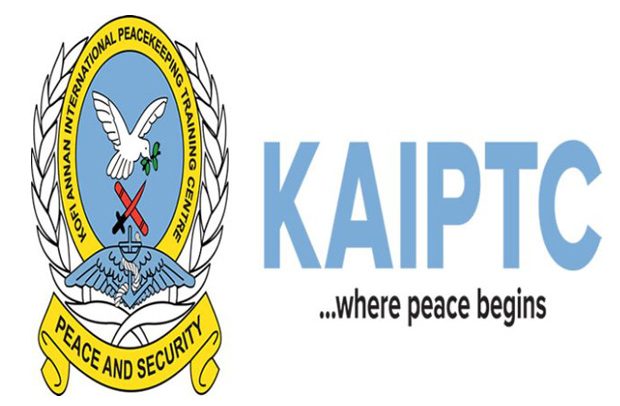The Women Peace and Security Institute of the Kofi Annan International Peacekeeping Training Centre KAIPC has advocated a continental consciousness that limits the cultural and societal norms which impede the success and advancement of women.
In a press release to commemorate the International Women’s Day, they stated that “we will continue to work with security forces to increase the number of females recruited into the security agencies and deployed in peace missions. We will continue to partner with allies (men and organizations) who over the years have supported the call for equality among the sexes. These allies continue to fight to ensure that the ‘right woman or man’ is given the job.
International Women’s Day is a celebration of the economic, political, social and cultural achievements of women across the globe and a call-to-action to progression towards gender parity all over the world.
The theme for the celebration this year is #PressforProgress.
The Women Peace and Security Institute also called for the elimination of gender based violence across the African continent, especially in areas where conflict continues to rage. Violent conflict continues to have devastating consequences, resulting in a widening gap between women and men, according to the women.
Women, they said, often have fewer resources to protect themselves, their children and families.
Though women have led peace movements and driven community recoveries in post-conflict, they are almost completely missing from peace negotiations, the women said, adding that ‘in the deployment of personnel to mitigate in the conflict, female personnel are still in the minority. Exclusion from reconstruction limits access to opportunities to recover to gain justice for human rights abuses, and to participate in shaping reformed laws and public institutions.’
There has been a devastating upsurge of violence against women and girls.
In Northern Nigeria young girls have been used as bargaining chips for the release of suspected militants.
In Democratic Republic of the Congo (DRC), South Sudan and Sudan women and young girls are used as weapons of war by some national armies, rebels or militant groups, the women declared.
It must be acknowledged that significant progress has been made across the continent to increase the number of women in leadership positions.
They pointed out that in Ghana, Nigeria, Senegal and Rwanda, concerted efforts have been made to reduce the marginalization of women, especially in the areas of education, economic and political participation, access to healthcare and personal safety.’
Despite these achievements, the protection of women and girls against gender-based violence continues to be high on the continent, they noted.
The significant absence of women in the security agencies has been attributed to capacity gaps, lack of resources, lack of morale, family support and stigma, they said.
“The greatest of all these challenges continue to be stigma– societal norms, perception and stereotypes. Cultural norms prevent and limit expectations of what women can do or should do in society. It contributes to the continuous sexual objectification of women and limits female achievement to only social norms (e.g., marriage and child birth).’
The Women, Peace and Security Institute (WPSI) is an institute of the Kofi Annan International Peacekeeping Training Centre (KAIPTC), which works to support the full implementation of the United Nations Security Council Resolution (UNSCR) 1325 and its follow-up resolutions on women, peace and security in the context of Africa and beyond.


